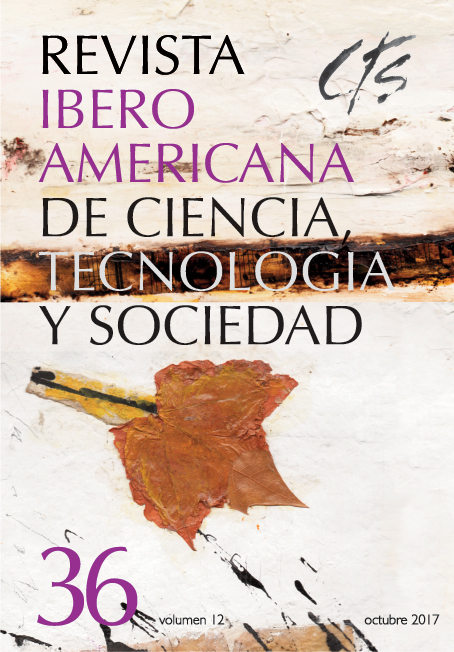Foreign Space Bases: The Construction Of An Imaginary On China And Europe In Argentine Press And Politics
Keywords:
geopolitics, imaginary, space stations, China, EuropeAbstract
This paper aims at analyzing the construction of the Argentine geopolitical imaginary about the People’s Republic of China, drawing from the Deep Space Station in Bajada de Agrio, Province of Neuquén, and the differences between said imaginary and the one constructed regarding Europe, based on the Deep Space Antennae in Malargüe, Province of Mendoza. In order to trace the construction of this geopolitical imaginary, an analysis was carried out on statements appearing in newspapers, both national and from the country’s capital, between 2009 and 2016 (Clarín, La Nación, Perfil and Página/12). These journalistic documents will be studied, described and analyzed to understand the building of the imaginary, selecting those which deal with the subjects of this paper.Downloads
References
AGNEW, J. (1995): Mastering space. Hegemony, territory and international political economy, New York, Routledge.
AGNEW, J. (2005): Geopolítica. Una re-visión de la política mundial, Madrid, Trama.
ARUGUETE, N. (2011): “Framing. La perspectiva de las noticias”, La Trama Comunicación, n° 15, pp. 67-80.
ELLIS, R. (2011): “China-Latin America Military Engagement: Good Will, Good Business, and Strategic Position”, Army War Coll Strategic Studies Institute Carlisle Barracks Pa. Disponible en: http://oai.dtic.mil/oai/oai?verb=getRecord&metadataPrefix=html&identifier=ADA548685. Consultado el 10/08/2016.
GOFFMAN, E. (2006): Frame analysis: los marcos de la experiencia, Madrid, Centro de Investigaciones Sociológicas.
GRAMSCI, A. (2000): Los intelectuales y la organización de la cultura, Buenos Aires, Nueva Visión.
GUZZINI, S. (2013): Power, Realism and Constructivism, Nueva York, Routledge.
MITCHELSTEIN, E., BOCZKOWSKI, P. J., WAGNER, C. y LEIVA, S. (2016): “La brecha de las noticias en Argentina: factores contextuales y preferencias de periodistas y público”, Palabra Clave, vol. 19, n° 4, pp. 1027-1047.
ONUF, N. (1989): World of our making: Rules and Rule in Social Theory and International Relations, Columbia, University of South Carolina Press.
ONUF, N. (2013): Making sense, making worlds. Constructivism in Social Theory and International Relations, Nueva York, Routledge.
PAARLBERG, R. (2004): “Knowledge as Power: Science, Military Dominance, and U.S. Security”, International Security, vol. 29, n° 1, pp. 122-151.
PESTRE, D. (2005): Ciencia, dinero y política, Buenos Aires, Nueva Visión.
RUTTAN, V. (2006): Is War Necessary for Economic Growth? Military Procurement and Technology Development, Oxford, Oxford University Press.
TAYLOR, P. y FLINT, C. (2002): Geografía política. Economía-Mundo, Estado-Nación y localidad, Madrid, Trama.
THOMAS, H. (2010): “Los estudios sociales de la tecnología en América Latina”, Íconos, n° 37.
Downloads
Published
How to Cite
Issue
Section
License
All CTS's issues and academic articles are under a CC-BY license.
Since 2007, CTS has provided open and free access to all its contents, including the complete archive of its quarterly edition and the different products presented in its electronic platform. This decision is based on the belief that offering free access to published materials helps to build a greater and better exchange of knowledge.
In turn, for the quarterly edition, CTS allows institutional and thematic repositories, as well as personal web pages, to self-archive articles in their post-print or editorial version, immediately after the publication of the final version of each issue and under the condition that a link to the original source will be incorporated into the self-archive.











